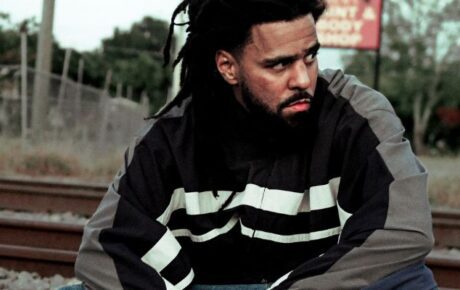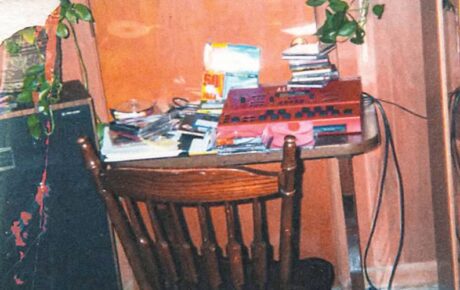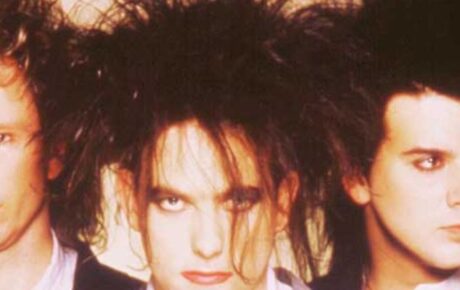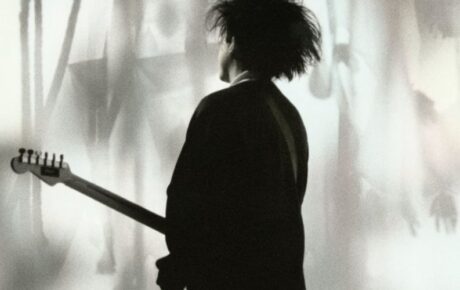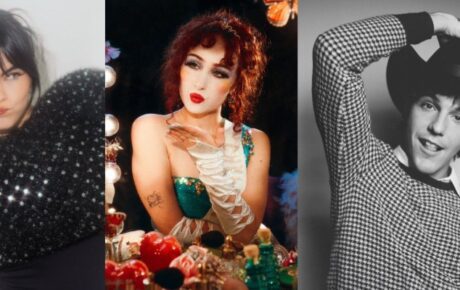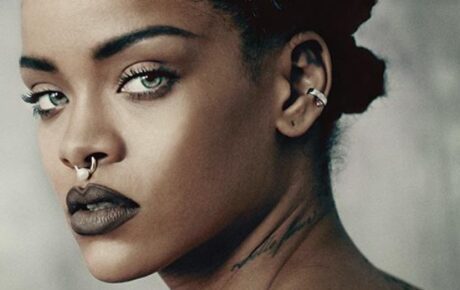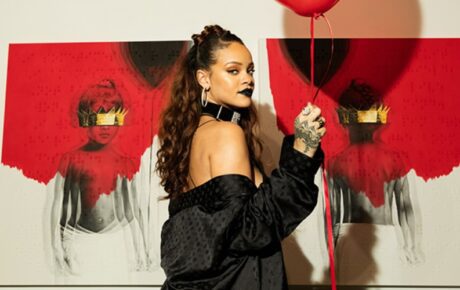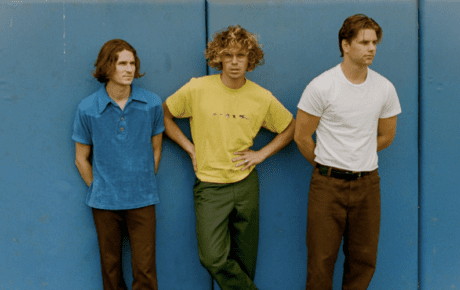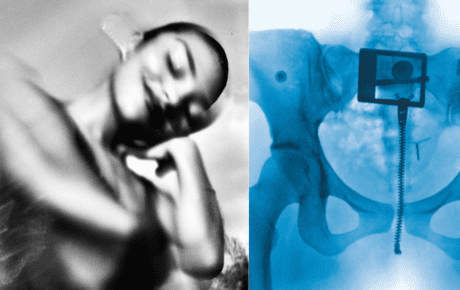Twenty years ago, Gwen Stefani introduced us to the four core concepts of her musical universe on her debut album Love. Angel. Music. Baby. Stepping out on her own for the first time, Stefani’s record reflects the height of the weird and wacky 2000s, combining eclectic sounds with excessive kitsch. This was an intentionally bizarre separation from Stefani’s previous brand as a rock chick fronting No Doubt. Now, she was instead the grand leader of her troop of Harajuku Girls, celebrating and satirising the world of celebrity through twelve tracks about money, fame, love, sex and fashion.
Beginning as a side project in 2003, Gwen Stefani fully switched focus to her solo debut when No Doubt went on hiatus in 2004. She aspired to indulge her “girly side” and improve her songwriting outside of her band. However, she quickly found her work becoming more personal too, finding it to be a cathartic method of expressing her feelings and experiences. Stefani jumped into the studio with a vast list of inspirations, from Madonna and Prince to Depeche Mode and The Cure. Now all this time later, Love. Angel. Music. Baby. still sounds fresher than ever thanks to how out of the box it really is. Although the production is intended as a pastiche of 1980s synth and dance pop, Stefani’s wide array of collaborators also drew upon cutting edge elements from modern rock, soul, new wave and hip-hop.
The musical era also tied itself closely to Japanese culture, before the rise of K-Pop and J-Pop became mainstream in the western world. Stefani’s four Japanese-American back-up dancers known as the Harajuku Girls attended many promotional events and performances at her side, all given a unique character name from the record’s title, which was also the name of Stefani’s fashion line launched the previous year. Each performer represented a different figment of Stefani’s imagination which she valued. Whilst this approach is frequently criticised today as culturally appropriative, there’s something to be said for Stefani’s clearly legitimate love for the Japanese “kawaii” movement. The album celebrates this “Fatal attraction to cuteness”, exploring the idea of using clothing as a language to communicate the feelings of the youth.
Many of the decade’s most iconic hits hail from Love. Angel. Music. Baby. The most memorable track is of course ‘Hollaback Girl’, a bratty anthem co-written and produced by the legendary duo The Neptunes. The song was allegedly created as a sarcastic response to Courtney Love, who insulted Stefani by calling her a “cheerleader” who didn’t fit in with those in “the smoker shed” of rock music. Its minimalistic production still divides listeners between considering ‘Hollaback Girl’ as amazing and annoying, but either way it’s definitely unforgettable, and Stefani’s lingo made its way into our daily conversations with ease when shit indeed got bananas. Similarly, ‘Rich Girl’ lives on as a Y2K classic, leaning into our universal desire for wealth with a fierce verse from Eve and production from the iconic Dr. Dre. ‘Rich Girl’ is a prime example of how far Love. Angel. Music. Baby.’s inspirations reached, cleverly interpolating ‘If I Were A Rich Man’ from the 1964 musical Fiddler on the Roof into a glittering reggae beat.
There’s also plenty to love about the wonderfully strange lead single ‘What You Waiting For’. This chaotic number explores how women struggle to maintain a career, find love and start a family all before the societal clock runs out. It’s a topic Stefani previously touched on with No Doubt on 2000’s ‘Simple Kind of Life’, but here, the emotion is less mournful and more on edge. ‘What You Waiting For’ takes the drama up a notch, with Stefani imitating her haters by throwing derogatory comments at herself over stressful “tick-tock” chants and a bubbling synth instrumental.
Some of the album’s deeper cuts also live on in their undeniable pop alchemy. ‘Cool’ chronicles Stefani’s relationship with ex-boyfriend and bandmate Tony Kanal, as they both found peace with new partners and rekindled a close, long-lasting friendship. The song feels gorgeously dreamy and nostalgic, showing off Stefani’s voice in a softer, more delicate light. ‘The Real Thing’ creates a similar vibe with a sweet Europop-influenced direction. Its melodies are timelessly emotional, with lyrics that are all the more romantic in their summery simplicity and Stefani’s sultry tone.
In recent years, the album has exploded in further popularity thanks to many viral TikTok sounds. Reworking a well-used Isley Brothers sample, ‘Luxurious’ is all about the 90s R&B and rap vibe, which seems to age backwards with listeners today. Its smooth, laidback chorus and rhythmic delivery will have you suddenly wondering why your life isn’t also filled with the finer things like “limousines”, “cashmere” and “Egyptian cotton”. Then there’s the cheeky throwback story of ‘Bubble Pop Electric’, which depicts Stefani and Andre 3000’s alter-ego Johnny Vulture escaping their parents to hook up at a drive-in movie theatre. This track thrives in its theatricality and silly sense of sexiness, and it’s a favourite of lip sync performers and dancers online. Even the album’s final single ‘Crash’ has experienced some modern success on social media, as a potential inspiration for the rise of electroclash in the following decade. It’s also the collection’s defining song about the sexuality of automobilia, a theme that reappears throughout by comparing expensive rides to rich relationships, and personal dramas to a speeding car’s violent end.
Not only does Love. Angel. Music. Baby. establish a sound that is wholly its own, but its strong character concept managed to rebrand Stefani as a larger-than-life pop star at the same time as revealing much of her real life behind the persona. The record’s melting pot of genres quickly went on to inspire works by acts like Fergie and Nelly Furtado. It also became a cult classic within the worlds of 2000s nostalgia, Japanese kawaii culture, and the queer community, who embraced Stefani’s intentionally tacky sense of retro chic. Twenty years later, Stefani has undergone many chameleon shifts. In fact, she’s just released her latest country project Bouquet. But there’s no doubt (pun intended!) that Love. Angel. Music. Baby. will be remembered as a truly original step into Stefani’s own musical career.

